IELTS Speaking Lesson about Advertisements
👇 Take this lesson with you! 👇
Table of Contents
IELTS Speaking vocabulary: Advertisements
Here are some useful nouns, adjectives and collocations to talk about adverts.
- Ad (n.)
- Advert (n.)
- Advertisement (n.)
- Advertisement (n.)
- Advertise (v.) __________ (selling)
- Advertise (v.) for _______ (looking for person)
This company advertises make-up products
This restaurant is advertising for a chef
Advertise in a newspaper / on the TV / on social media
TIP: Usually use ‘on’ for a platform
Different parts of an advert
What are the different parts of an advert?
Well, there are many different parts to an advert, whether it appears on the TV or in a newspaper. Here are the main aspects you should know.
- The headline. This appears at the top of a written advert and it is the part that needs to catch the reader’s attention.
In addition to writing, most adverts make use of some kind of visual support. These can be known as,
- Visuals
- Creatives
- Pictures
- Images
- Animation (sing.)
This advert has attractive visuals
I love the appealing creatives in this Facebook ad.
Another important aspect is the advertising slogan, which is often known as the tag line. Here are some famous examples
- Nike: Just Do It. …
- L’Oreal: Because You’re Worth It.
- McDonald’s: I’m Lovin’ It.
Nike has a such a catchy slogan, it is really engaging
Finally, many adverts make use of a short piece of music or sound, and this is called a jingle.
Find out more about some famous advertising slogans here:
https://www.wordstream.com/blog/ws/2021/09/21/advertising-slogans
Describing adverts
How would you describe these adverts?
Here are some useful phrases below to describe these advertisements.
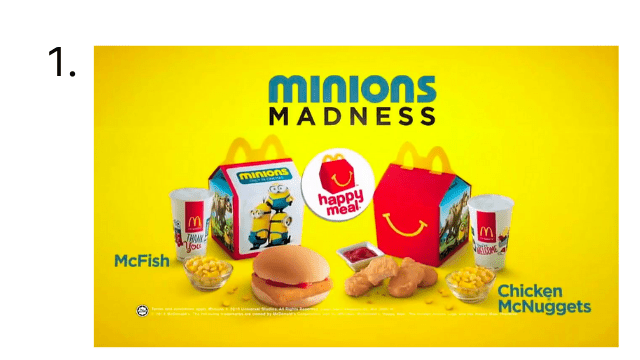
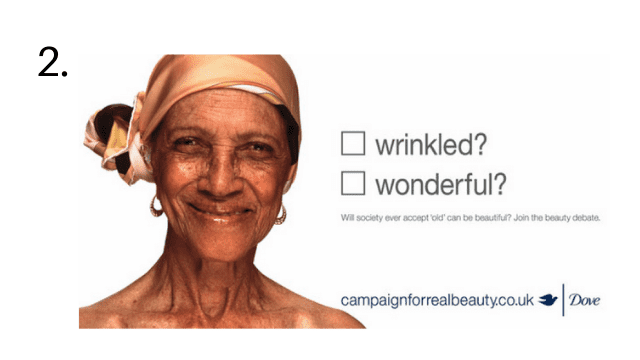
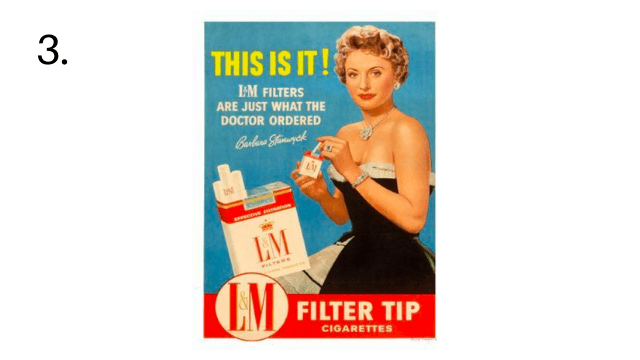
- Appealing and interesting visuals, misleading, shocking, attractive for children, makes good use of product endorsement (using celebrities or other famous brands), memorable, fun.
- Thought-provoking, engaging, provocative, unconventional (=not following the normal way), refreshing.
- Retro, vintage, old-fashioned, out-dated, dated, ancient (if we are being euphemistic or tongue-in-cheek), uses vivid and captivating colours, shocking, controversial (provoking disagreement), not mainstream (= unusual), misleading
The third advert is quite old and, back in the day, companies could have got away with saying cigarettes with a filter are ‘healthy’.
Nowadays, this kind of advert would be regulated and not allowed in many countries. So, we could say it is humorous, funny or even hilarious, because it is so unbelievable.
IELTS discussion: Good and bad adverts
What makes a good advert?
Here are some useful ideas and phrases to talk about the characteristics of a good or bad advert.
- It shouldn’t stretch the truth
to stretch the truth = to exaggerate
- It has celebrity endorsement = a famous person says it is a good product or service
- It has a captivating slogan
- It uses colourful / attractive visuals
- It cuts to the chase = it gets to the point
- There is clarity of message
- It conveys a clear message
- There is a clear target audience
- It appeals to the right target audience
- There is good storytelling and it is a memorable story
- There is an attractive hero / heroine
- There is tension in the story
- It has relatability = you can relate to it or you can identify with it. Both of these mean it’s relevant to your life.
- It catches your eye
- It grabs your attention
- It builds empathy and trust
- It creates a positive impression of the brand
In a saturated market (busy and full market), all of these are important

IELTS questions: Adverts you like and dislike
Templates for adverts you like
- I am fond of adverts that ______
- I tend to like adverts that ______
- I am one for adverts that ______
I’m fond of adverts that have a good storyline
Templates for adverts you dislike
- I can’t stand adverts that ______
- I loathe adverts that ______
- I can’t be doing with adverts that ______
I can’t be doing with adverts that mislead and give false information
Creating a slogan
If you want to help create a slogan for the Keith Speaking Academy, then you can add your idea to the board in the link below
http://linoit.com/users/keithohare/canvases/Keith%20Speaking%20Academy%20Slogan
Idioms to talk about adverts
- To have it down to a tee = after much practice, be able do it perfectly
I have played this song hundreds of times on the piano, now I have it down to a tee.
Apple have their advertising slogans down to a tee.
- Go viral = to spread quickly and widely
China Airline’s latest advert went viral across the world
- To splash out on = to spend a lot of money on something
The big companies like Coca Cola always splash out on advertising
- To stand out from the crowd = to be so much better that everybody notices you.
Apple’s latest advert for the iPhone 13 stood out from the crowd
- To harp on about something = to talk repeatedly about something in an annoying way
These adverts always harp on about how good the product is but then they never keep their promises
- To coin a phrase / tagline / slogan = to create a phrase
It’s not easy coining a catchy tagline or slogan

Pronunciation Files For Vocabulary From My Best Live Lessons
Use Words EASILY in English Conversations!
More Free Lessons
If you liked this lesson, leave a comment below!
There are more lessons you can follow in the links below too.
FOOD in IELTS Speaking. Idioms and vocabulary to learn how to talk about food.
BUSINESS PEOPLE in IELTS Speaking. Useful vocabulary and idioms to express yourself when talking about Business People and Entrepreneurs.
SOCIAL MEDIA in IELTS Speaking. Improve your listening and speaking skills for the topic of social media.
JOBS in IELTS Speaking Vocabulary you need to answer questions in Part 1, 2 and 3 for the topic of jobs.

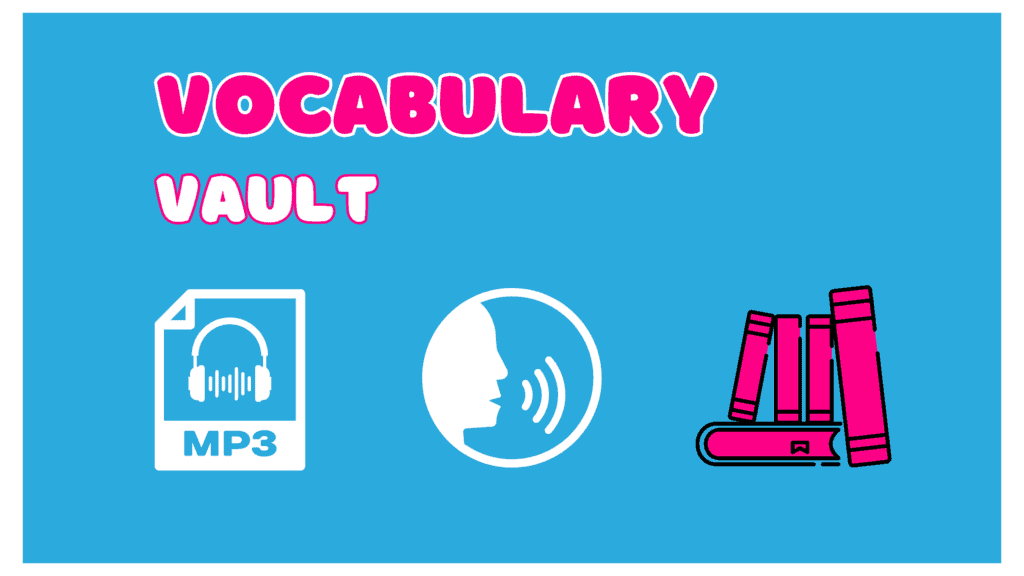
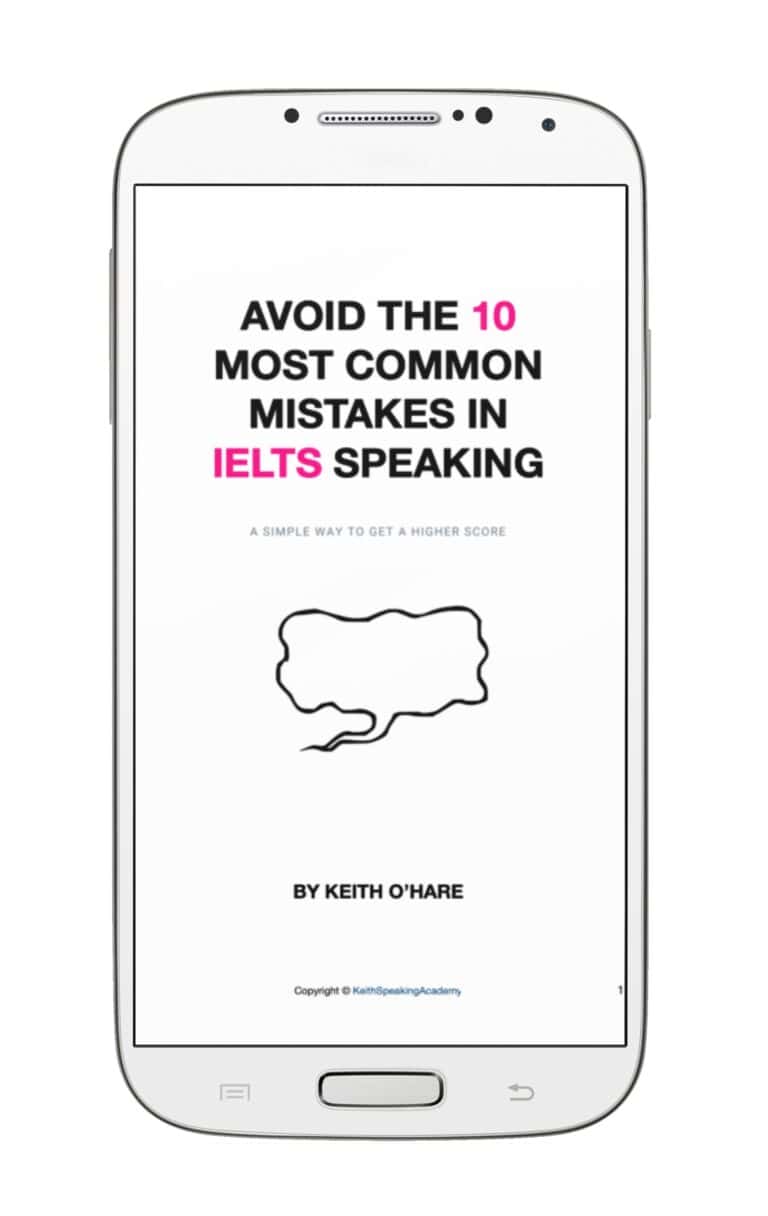
Thank you so much, sir Keith! Your lessons are absolutely helpful! I only used your resources plus the free idp materials. I got 7.5 on speaking! I will definitely recommend your lessons. God bless you.
Congratulations – so pleased my resources helped!
Hello there Prof.
Avelanch of thanks for you excellent explanations about this topic.
I can’t say how much more, really, really useful to me.
Sorry, I have a question
Is it possible to name one of the app for presenting in the class? I myself use PowerPoint and so on.
Please name one of them that you use it in your presentation.
I loveeereeeeee your presentation.
You are one of the best, famous, smart professor in the world.
Like
I mainly use Ecamm, Prezi and Kahoot.